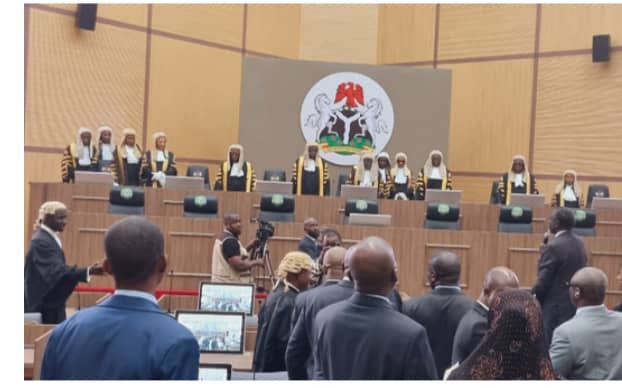In a significant legal showdown, the Supreme Court of Nigeria, led by a seven-member panel, has deferred its judgment on a pivotal suit advocating for the autonomy of Local Government Areas (LGAs) across the nation. Spearheaded by the Attorney General of the Federation and Minister of Justice, Prince Lateef Fagbemi (SAN), the lawsuit targets governors of all 36 states, alleging misconduct and financial mismanagement concerning funds allocated to local administrations.
The core contention of the lawsuit revolves around the call for complete autonomy for the 774 local governments operating within Nigeria. The apex court, presided over by Justice Garba Lawal, concluded the hearings on Thursday and has since reserved the judgment date. This pivotal legal battle has drawn the attention of legal experts and citizens alike, anticipating the ramifications of the court’s decision.
During the proceedings, the Attorney General urged the Supreme Court to grant all reliefs sought by the Federal Government, emphasizing the imperative of ensuring democratic governance at the grassroots level. However, the governors, represented by their respective state Attorneys General and Commissioners for Justice, vehemently opposed the petition, advocating for the dismissal of the case.
Citing legal technicalities, the governors challenged the locus standi of the Attorney General to initiate the lawsuit on behalf of the Federal Government. They further argued that the absence of proper notification regarding additional affidavits infringed upon their right to a fair trial. Additionally, some states contended that the existence of democratically elected local government officials renders the federal intervention unnecessary, branding it as an abuse of judicial process.
The crux of the matter lies in the interpretation of constitutional provisions governing the Nigerian federation. The lawsuit contends that under Sections 1, 4, 5, 7, and 14 of the constitution, state governors and legislatures are duty-bound to uphold democratic principles at the local government level. It seeks to affirm that governors lack the authority to arbitrarily dissolve democratically elected local councils, emphasizing the paramount importance of grassroots democracy.
Backed by a detailed affidavit from a representative of the Federal Ministry of Justice, the Attorney General maintains that the autonomy of local governments is not only a legal imperative but also a matter of national significance. The lawsuit identifies the constitutional mandate to ensure that funds earmarked for local development are directly channeled to democratically elected councils, bypassing alleged unlawful joint accounts controlled by state governors.
The Federal Government’s petition before the Supreme Court encompasses multifaceted demands. It seeks an injunction against the appointment of caretaker committees to oversee local government affairs, advocating for the reinstatement of democratically elected officials. Furthermore, it calls for strict measures to prevent state governors from misappropriating funds intended for local development, emphasizing the need for transparent and accountable governance structures.
As the legal battle unfolds, the nation awaits the Supreme Court’s judgment, cognizant of its far-reaching implications. The verdict will not only shape the dynamics of governance but also influence the balance of power between federal and state authorities. At its core, the case emphasize on the enduring quest for democratic governance and fiscal autonomy at the grassroots level, reflecting the aspirations of Nigerian citizens for inclusive and transparent governance.




